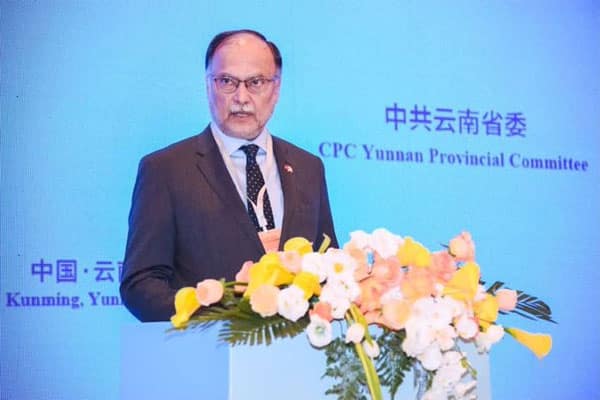ISLAMABAD: Federal Minister for Planning Ahsan Iqbal announced that Pakistan has formally launched Phase II of the China-Pakistan Economic Corridor (CPEC), which will establish a dedicated corridor to connect Balochistan’s mineral resources with Gwadar.
Speaking to the media in Beijing after chairing the 14th Joint Cooperation Committee (JCC) meeting, Iqbal said the formal start of CPEC Phase II marked a new era of cooperation. “Unlike Phase I, the second phase will emphasize business-to-business partnerships rather than government-to-government projects,” he said, adding that Pakistan would create a favorable environment for Chinese companies to invest.
The minister described Beijing’s investment conference as the starting point of a new journey. He reaffirmed that Pakistan’s “Uraan Pakistan” vision seeks to transform the country into a one-trillion-dollar economy by 2035. He said the “Five Es Framework” and the five CPEC corridors are interlinked, covering growth, employment, innovation, green energy, and infrastructure.
Iqbal explained that the Growth Corridor will boost exports and accelerate economic development, while the Employment Corridor will uplift underdeveloped regions. He said the Innovation Corridor will allow Pakistan to benefit from China’s technological expertise and create a Digital Silk Road, whereas the Green Energy Corridor will promote cooperation against climate change risks. The Infrastructure Corridor, he noted, will expand regional connectivity with Central Asia and Afghanistan through new transport networks.
He said President Xi Jinping’s vision of shared prosperity and regional development aligned with Pakistan’s economic roadmap. “Pakistan has proposed that CPEC Phase II place people’s welfare and youth skill development at its core,” he said. He added that with a majority youth population, Pakistan aims to integrate young people into national progress by sending 10,000 students for PhDs in emerging technologies to China’s top 50 universities over the next decade.
Also Read: CPEC-2 to bring growth and opportunities for youth
The minister said advanced training would help Pakistan build a technology-driven economy and enable the country’s youth to trigger an economic revolution in the coming two decades. “Equipping our youth with modern education and skills remains our top priority,” he said, confirming that discussions with China included technical and vocational training cooperation.
Iqbal said Pakistan would also adopt China’s poverty reduction model to promote sustainable development and public prosperity. He confirmed that both sides agreed to accelerate work on the second phase of the Karakoram Highway and discussed plans for a mineral corridor to link Gwadar with Balochistan’s vast mineral wealth.





